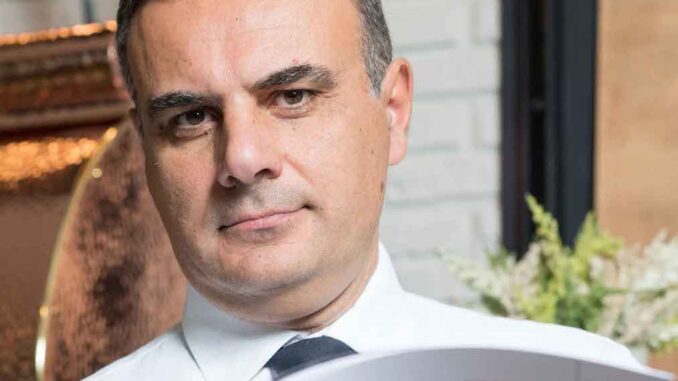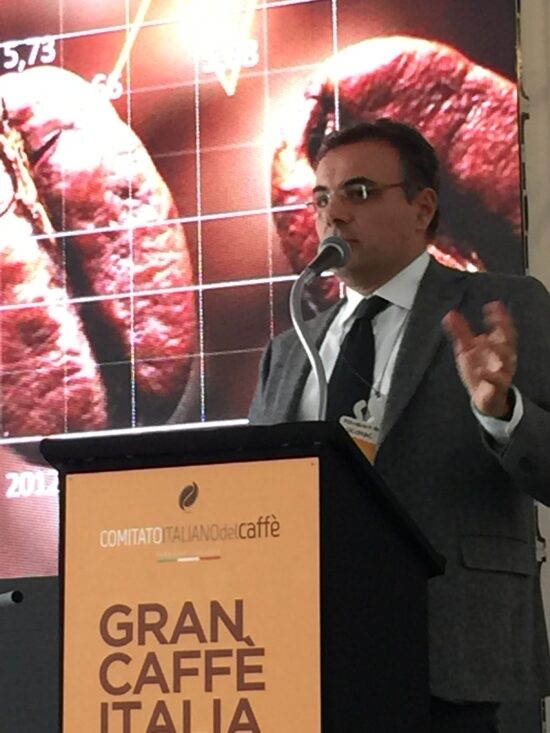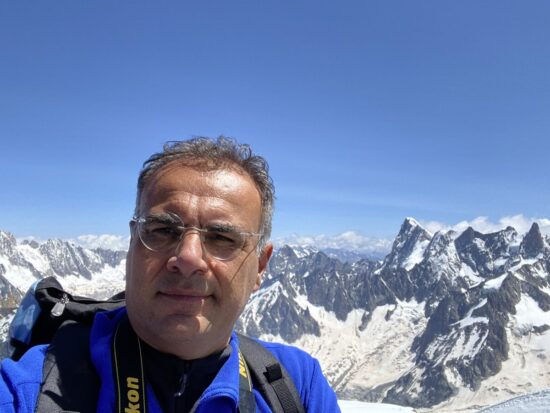
We finish our interview with longtime coffee professional and Simonelli Group team member Maurizio Giuli by discussing the progression of barista culture and his fascination with coffee research.
BY SARAH ALLEN
BARISTA MAGAZINE ONLINE
Photos courtesy of Maurizio Giuli
From the editor: Yesterday, we began learning more about Simonelli Group executive Maurizio Giuli, and how he has seen the rise of specialty coffee since its birth. In part two of the interview here, he attributes the Simonelli success to the flourishing of the barista as a career, and also proclaims his love for research in coffee.
This interview has been condensed.
Sarah Allen: Please discuss your impressions of the professional barista community: In your time in coffee, how have you seen it grow and develop? For example, I recall when we started Barista Magazine in 2004, baristas were not regarded with the respect they command today. Why and how has that changed, and why is it for the better of our community?
Maurizio Giuli: This is true. A barista’s job was considered a halfway job for students in the past. In some places, this job is still regarded as unskilled and underpaid. But the overall condition of the barista has improved a lot over the years. In many specialty-coffee shops and chains, the barista is now an expert, not just focused on preparing the drink but on supporting the customer to select his preferred type of coffee and transform such into a quality experience. I believe the evolution of the barista’s role is strictly related to the specialty movement, which puts quality at the center of the service. There is no good service without passion and refined skills. Just like in restaurants where the client chooses the destination based on the chef, the same thing happens in coffee shops. The client decides where to get coffee based on the barista because he trusts his expertise.
For me, the future of the coffee industry, especially in the foodservice sector, will depend more and more on the quality of the product. There is little room to grow in volume in consuming countries as people cannot drink coffee more than the body allows. So, the business development will be exclusively on the product’s value, and that is where a top-skilled barista comes into the picture. I am confident that the upward trend for baristas’ conditions will continue to help the whole coffee community grow.

Simonelli Group has been perhaps the greatest supporter of baristas in the world of coffee equipment companies. Please explain why that is so important to the company in general and to you personally? I am not just referencing Simonelli’s incredibly generous support via the Word Barista Championship (WBC), but through the Knowledge Hub, various camps you have hosted for young baristas, and much more.
We highly respect baristas, as we consider them partners before customers. They drive us to improve our products and services as they work hands-on. … We considered the cooperation with the WBC an excellent opportunity to learn from top baristas and understand their needs. Talking with competitors and their staff was vital because they wanted to achieve the best performance. This interaction allowed us to understand which direction we had to focus our research. Listening and confronting ideas with them allowed us to help them reach their goals and improve results. We were committed to giving them the maximum support possible, and all my technical service colleagues helped them during their preparation process and just before the competition. …
Besides providing support via WBC, the company is also very active through the Knowledge Hub with Simonelli Academy and now Coffee Knowledge Hub, a platform for educational opportunities such as Cup of Excellence, Coffee Sensorium, and ZHAW University. In our opinion, it is essential to focus on the younger generation, who can find difficulties in starting their careers.
It was just announced that Simonelli is the Official Grinder Sponsor for the WBC for 2022–2024. In this new role, how does the company hope to continue to support professional baristas?
We’re so glad to have the opportunity to continue supporting the WBC in the following years. After 13 years as the official machine of the WBC, we realized that it was time to give this extraordinary opportunity to other players in the industry. Becoming the grinder sponsor with our Mythos allows us to continue supporting the community and invest also in other activities such as education, research, and sustainability. We are doing this to give us more resources to bring to the table and fully commit to the coffee community.

Personally: What do you enjoy doing in your spare time—activities, sports, hobbies?
In my spare time, I like to read, run, and walk. I enjoy spending time with friends. When I have a little extra time, I enjoy mountain activities such as skiing and climbing, allowing me to connect with nature. Recently, I rediscovered my forgotten passion for cycling, so my family and I sometimes organize trips to the countryside on the weekend. These activities are a good occasion for me to contact friends, enjoy good food, and relax.
You are deeply involved in research and have written extensively. Can you please detail some of this work for me?
My passion for research and my constant curiosity to know more are habits, especially after my degree. I also continue to teach marketing at the university partly, and even if it is not my main job, it absorbs a lot of my spare time. It is challenging, but it is a way to stay stimulated and focused and continuously be updated.
I never stop analyzing and exploring because a strong analysis must back up every decision made. After three years of research, I published a book in 2014 written in Italian together with Professor Pascucci. The Return of the Italian Espresso Coffee’s Competitiveness is a deep analysis of the evolution of the world of coffee and the condition of Italian companies. This book was very much appreciated in the community and involved me speaking during several events. All this work allowed me to deepen my knowledge about the coffee industry over time, thus understanding the actual evolution throughout the years. From this perspective, it is fascinating to look at the events re-shaping the industry. To quote the last two articles, one regards the recent acquisitions phenomenon of some Italian coffee roasters from foreign companies. The previous one was a prospect analysis about the future of the coffee business, which I did for the Coffee Knowledge Hub, which was later relaunched by Comunicaffè. It became one of the top 10 articles of the year 2021.

